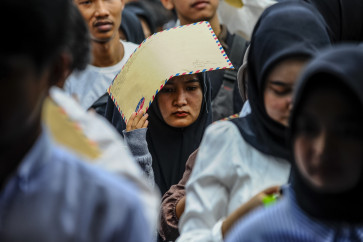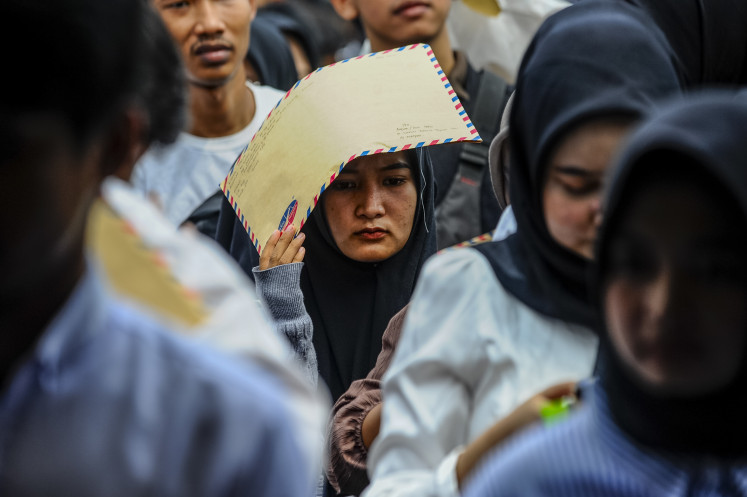Norway opposition expected to win election fought on oil, inequality
Norway's status as a major oil and gas producer has been at the center of the campaign though a transition away from petroleum - and the jobs it creates - is likely to be gradual whoever wins.
Change text size
Gift Premium Articles
to Anyone

N
orway was voting on Monday on the final day of a parliamentary election dominated by climate change and economic inequality, with the center-left opposition widely expected to replace a Conservative-led government that has ruled for eight years.
Norway's status as a major oil and gas producer has been at the center of the campaign though a transition away from petroleum - and the jobs it creates - is likely to be gradual whoever wins.
Opinion polls show Labour is on course to replace Prime Minister Erna Solberg's coalition but would need support from at least two more parties to secure a majority of seats, setting the stage for post-election bargaining.
"Our policies are working, employment is going up [...] so we should continue them," Solberg told reporters after voting in her hometown of Bergen.
The person projected to become the next prime minister, Labour leader Jonas Gahr Stoere, hopes Labour, the Centre Party and the Socialist Left will between them win a majority and form a government.
Like Solberg, he wants to give oil firms time to adapt their engineering prowess gradually to pursue green technologies such as offshore wind turbines.
"I believe that calling time on our oil and gas industry is the wrong industrial policy and the wrong climate policy," Stoere told reporters on Sunday after casting his ballot on the first day of the election.
But polls show he could become dependent on either the Red Party, which wants social reforms based on Marxist ideology, or the Green Party, which wants to shut down all of Norway's oil production by 2035.
Ruling in a minority could also be an option for Labour. Stoere says his government would focus on cutting the country's CO2 emissions in line with the 2015 Paris Agreement, but has rejected any ultimatum over energy policy.
If he wins, Stoere has pledged to address inequality by cutting taxes for low- and middle-income families and hiking rates for the rich.
Oil and gas
Petroleum policy presents perhaps the biggest challenge for the next prime minister, and the future of Norway's largest industry has been front and center of the campaign.
Citing concerns over climate change, several small parties - the Socialist Left, the Liberals, the Greens and the Reds - seek to halt oil and gas exploration, which brings in almost half the country's export revenues.
On the right, the Conservatives are dependent on the eco-friendly Liberals, who aim to halt exploration for any new reserves. Solberg is unlikely to accept that goal if she wins, but must find ways to satisfy her party's junior partner.
If Labour wins, it faces a similar demand from the Socialist Left to stop drilling for new reserves. But Stoere's own party is wary of the job losses that could follow, and its other likely partner, the Centre Party, favors continued drilling.
The strongest anti-oil stance is taken by the Green Party. Stoere says he will reject the Greens' attempt at setting ultimatums.
World's largest sovereign wealth fund
With US$1.4 trillion saved up from Norway's extensive oil and gas industry, all of it invested in foreign stocks, bonds and other assets, the next parliament faces questions over spending from the fund, as well as of proposed changes to the portfolio.
The fund now contributes a quarter of annual government spending, making Norway vulnerable in case of a sustained downturn in global financial markets. The government has proposed cutting the spending after the pandemic.
The fund itself should meanwhile push firms it invests in to eventually cut their greenhouse gas emissions to nil by 2050, in line with the Paris Agreement, a government-appointed commission recently recommended.









